Who owns Gaza? Israel's occupation plans
Egypt, Israel and the UK have ruled the beleaguered territory
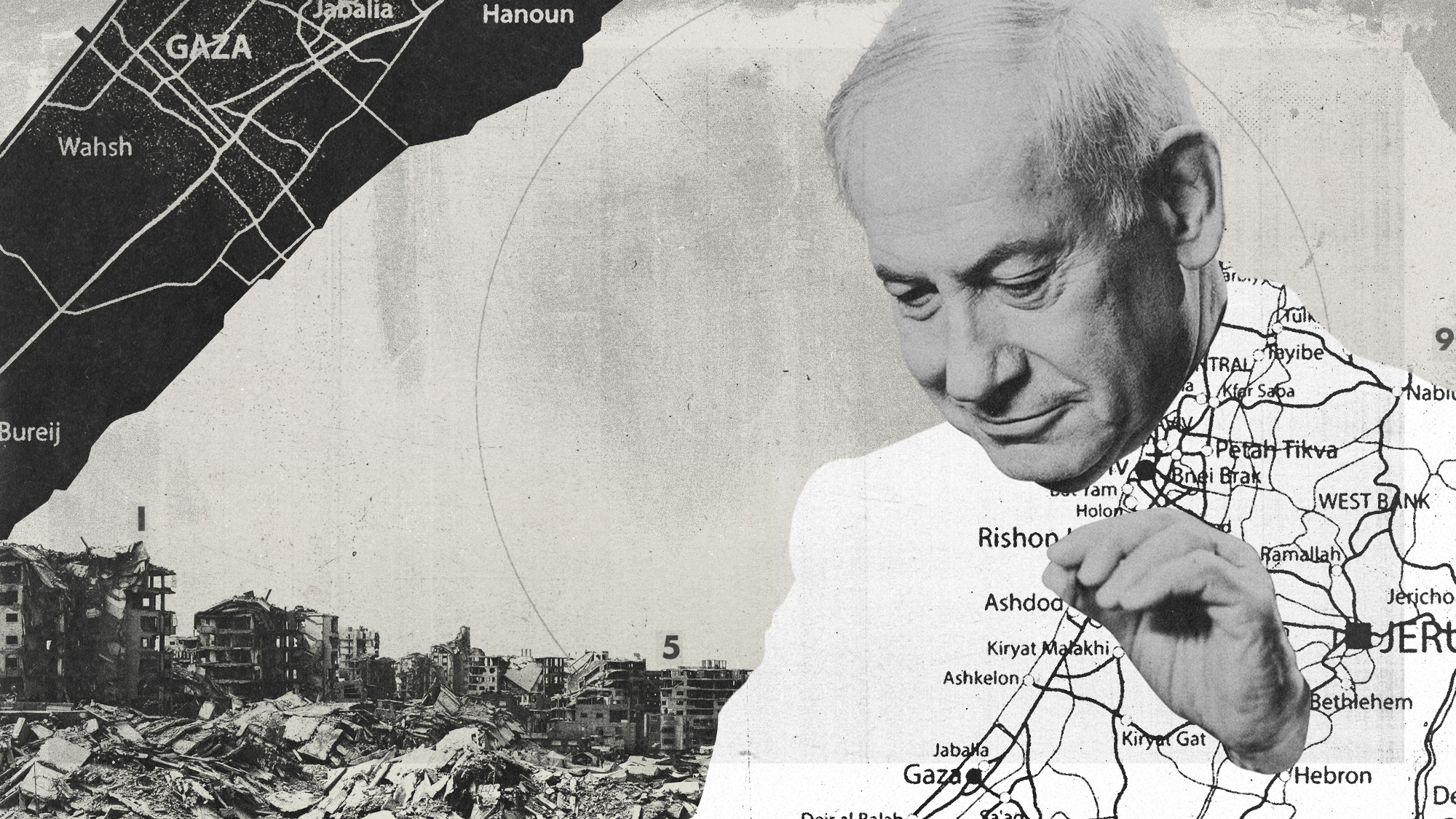
Occupying Gaza is the only way to ensure Israel's security and wipe out Hamas, claimed Benjamin Netanyahu as he announced that the Israeli army will "take control of Gaza City".
The UN said that the move risks "catastrophic consequences" for Palestinian civilians and Israeli hostages, and there has also been condemnation from world leaders, the Israeli military and relatives of the hostages.
Who owns Gaza?
Before Israel was established in 1948, the area now known as Gaza was "part of the large swathe" of the Middle East that was under British colonial rule, said South China Morning Post.
The Week
Escape your echo chamber. Get the facts behind the news, plus analysis from multiple perspectives.

Sign up for The Week's Free Newsletters
From our morning news briefing to a weekly Good News Newsletter, get the best of The Week delivered directly to your inbox.
From our morning news briefing to a weekly Good News Newsletter, get the best of The Week delivered directly to your inbox.
Upon the foundation of Israel, 700,000 Palestinians either fled or were forced from their homes. Tens of thousands of them "flocked" to the "strip of land wedged between Israel, Egypt and the Mediterranean Sea", which was handed to the control of the Egyptian army.
During the Six-Day War of 1967, Israel took control of Gaza from Egypt and began to build settlements on the land. Then, after Israel and the Palestinians agreed the Oslo Accords in 1993, control of Gaza was handed to the Palestinian Authority (PA).
In 2005, Israel performed a unilateral withdrawal from Gaza, uprooting all of its troops and thousands of settlers. Within months, Hamas won parliamentary elections in Gaza and aggressively seized control of the territory from the PA. In response, Israel imposed a strict blockade on Gaza, which some argued was another form of occupation.
What is the legal definition of 'occupation'?
According to Article 42 of the 1907 Hague Regulations a territory is considered occupied "when it is actually placed under the authority of the hostile army". Israel is not a party to the Fourth Hague Convention but it's "considered customary international law" and, therefore it "still binds Israel", said Atlantic Council.
What might happen next?
There are fears that settler movements may seize the opportunity to try and return to Gaza, said Leonie Fleischmann on The Conversation. Since Israel began its "onslaught" in the strip, settler groups have been calling for the resettlement of Gaza and although it's "not yet clear" whether Netanyahu plans to allow the establishment of civilian settlements there, "historical precedent makes this a very real possibility".
Some have speculated, however, that the "threat of full occupation" is just part of a "strategy" to pressure Hamas to make concessions in "stalled talks", said Hugo Bachega, the BBC's Middle East correspondent. "We don't want to govern it. We don't want to be there as a governing body," Netanyahu has said. We "want to hand it over to Arab forces that will govern it properly without threatening us and giving Gazans a good life."
A free daily email with the biggest news stories of the day – and the best features from TheWeek.com
How these aims are realised is less than clear, as Jonathan Sacerdoti noted in The Spectator. "Politically", the notion of "long-term Israeli security control over Gaza" without annexation or direct governance presents an "unsolved riddle: who will take responsibility for civil life once the guns fall silent"?
Chas Newkey-Burden has been part of The Week Digital team for more than a decade and a journalist for 25 years, starting out on the irreverent football weekly 90 Minutes, before moving to lifestyle magazines Loaded and Attitude. He was a columnist for The Big Issue and landed a world exclusive with David Beckham that became the weekly magazine’s bestselling issue. He now writes regularly for The Guardian, The Telegraph, The Independent, Metro, FourFourTwo and the i new site. He is also the author of a number of non-fiction books.
-
 11 hotels opening in 2026 to help you reconnect with nature
11 hotels opening in 2026 to help you reconnect with natureThe Week Recommends Find peace on the beaches of Mexico and on a remote Estonian island
-
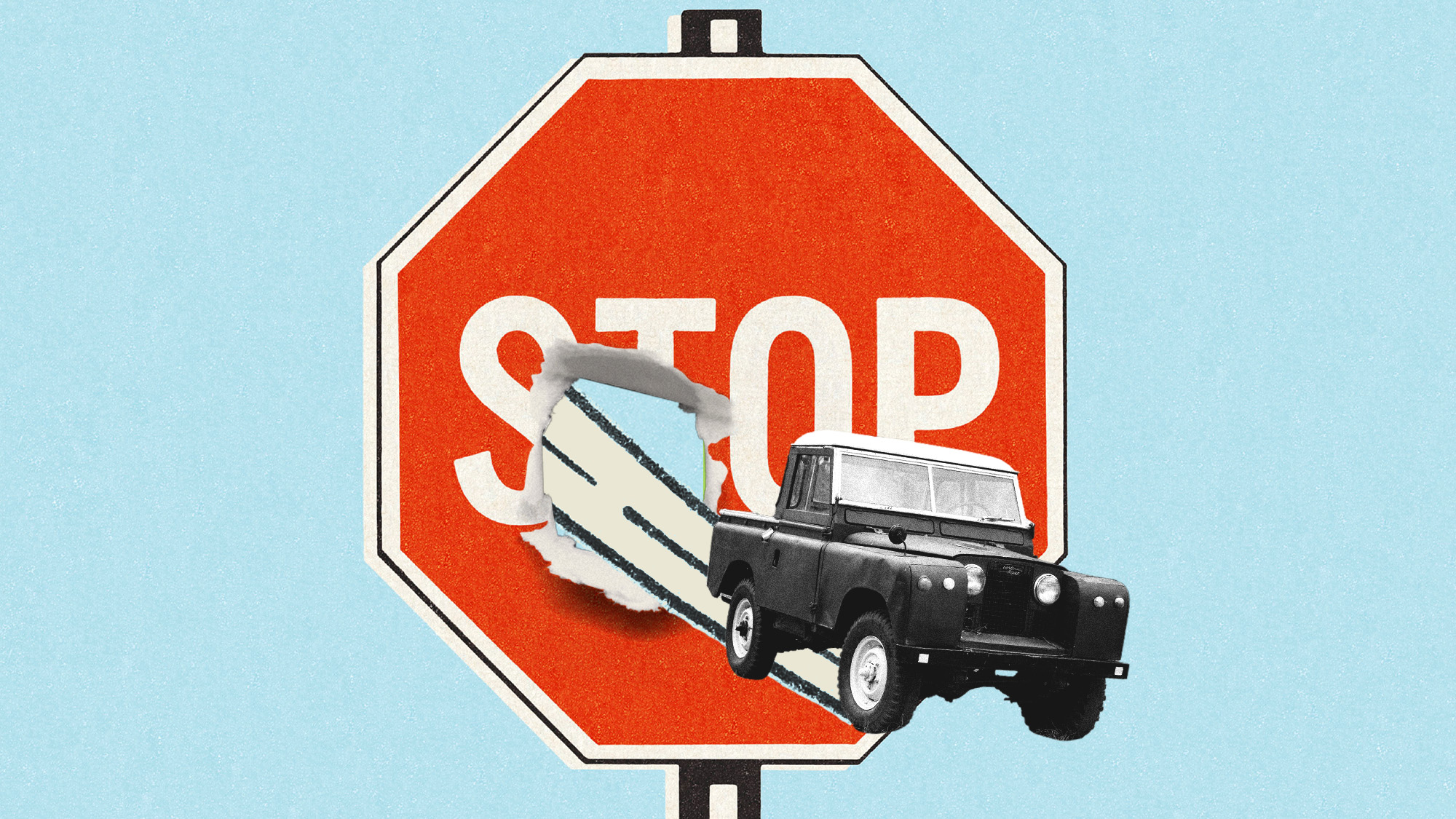 Zimbabwe’s driving crisis
Zimbabwe’s driving crisisUnder the Radar Southern African nation is experiencing a ‘public health disaster’ with one of the highest road fatality rates in the world
-
 The Mint’s 250th anniversary coins face a whitewashing controversy
The Mint’s 250th anniversary coins face a whitewashing controversyThe Explainer The designs omitted several notable moments for civil rights and women’s rights
-
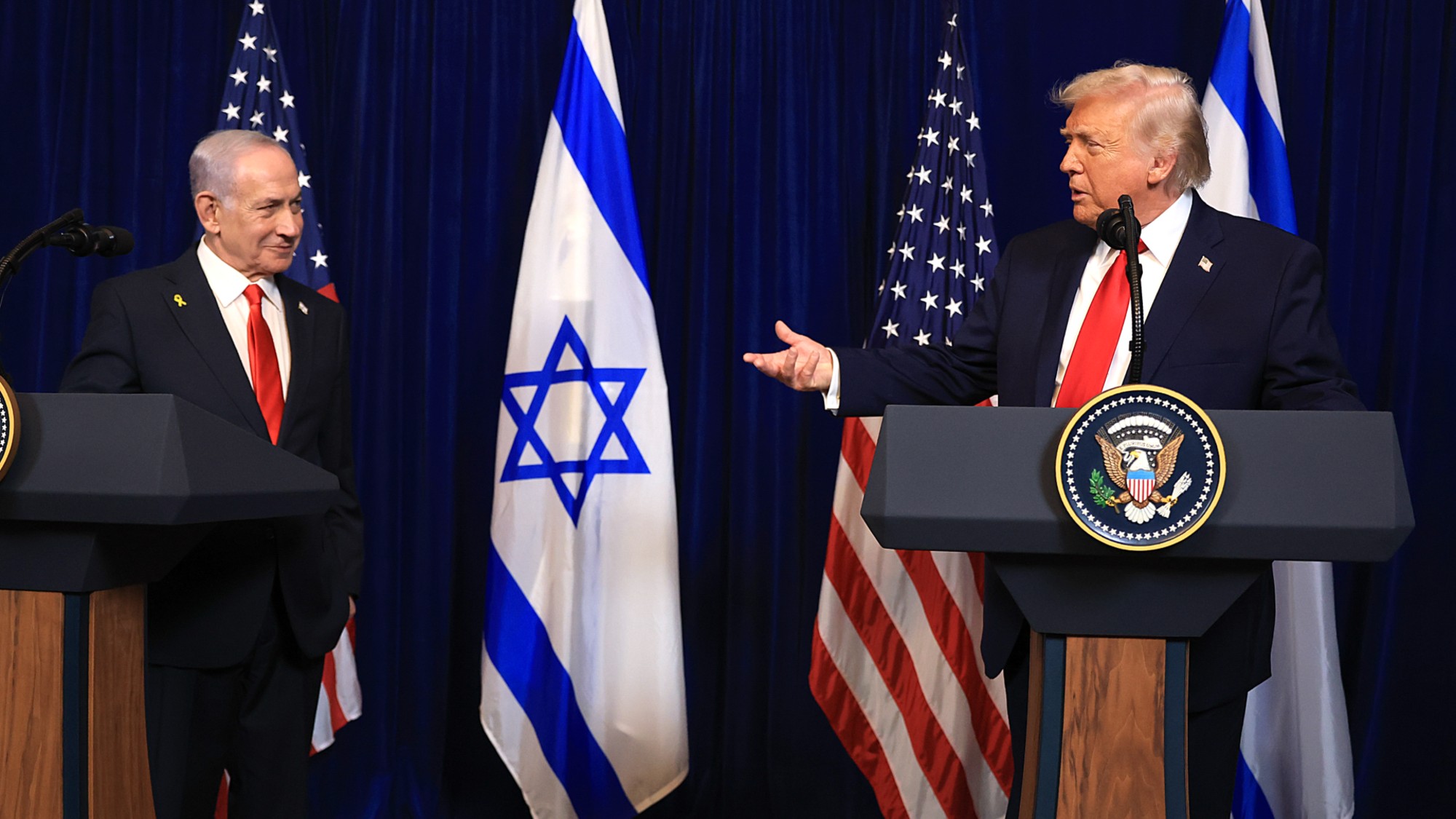 ‘Let 2026 be a year of reckoning’
‘Let 2026 be a year of reckoning’Instant Opinion Opinion, comment and editorials of the day
-
 What have Trump’s Mar-a-Lago summits achieved?
What have Trump’s Mar-a-Lago summits achieved?Today’s big question Zelenskyy and Netanyahu meet the president in his Palm Beach ‘Winter White House’
-
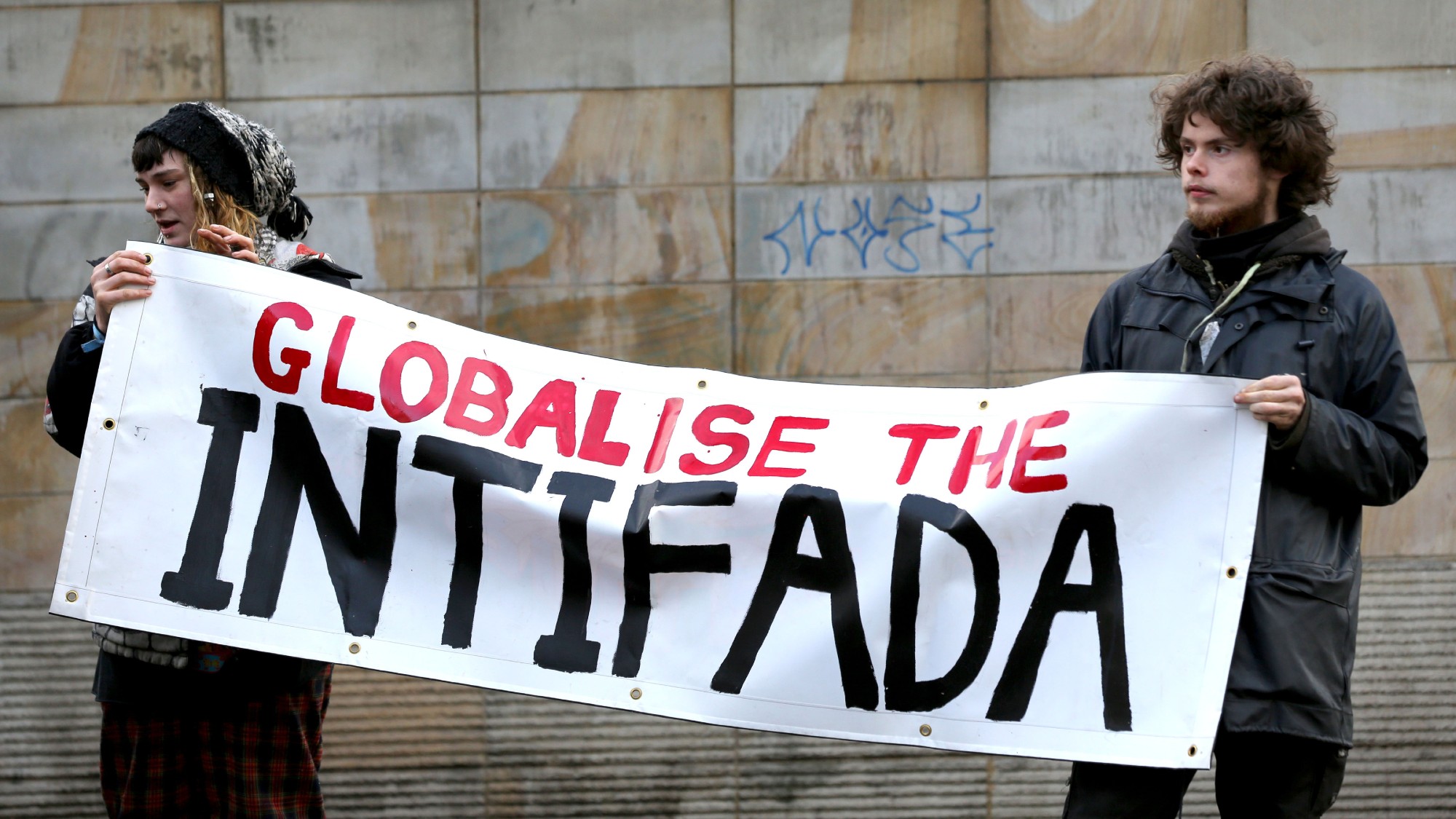 What is the global intifada?
What is the global intifada?The Explainer Police have arrested two people over controversial ‘globalise the intifada’ chants
-
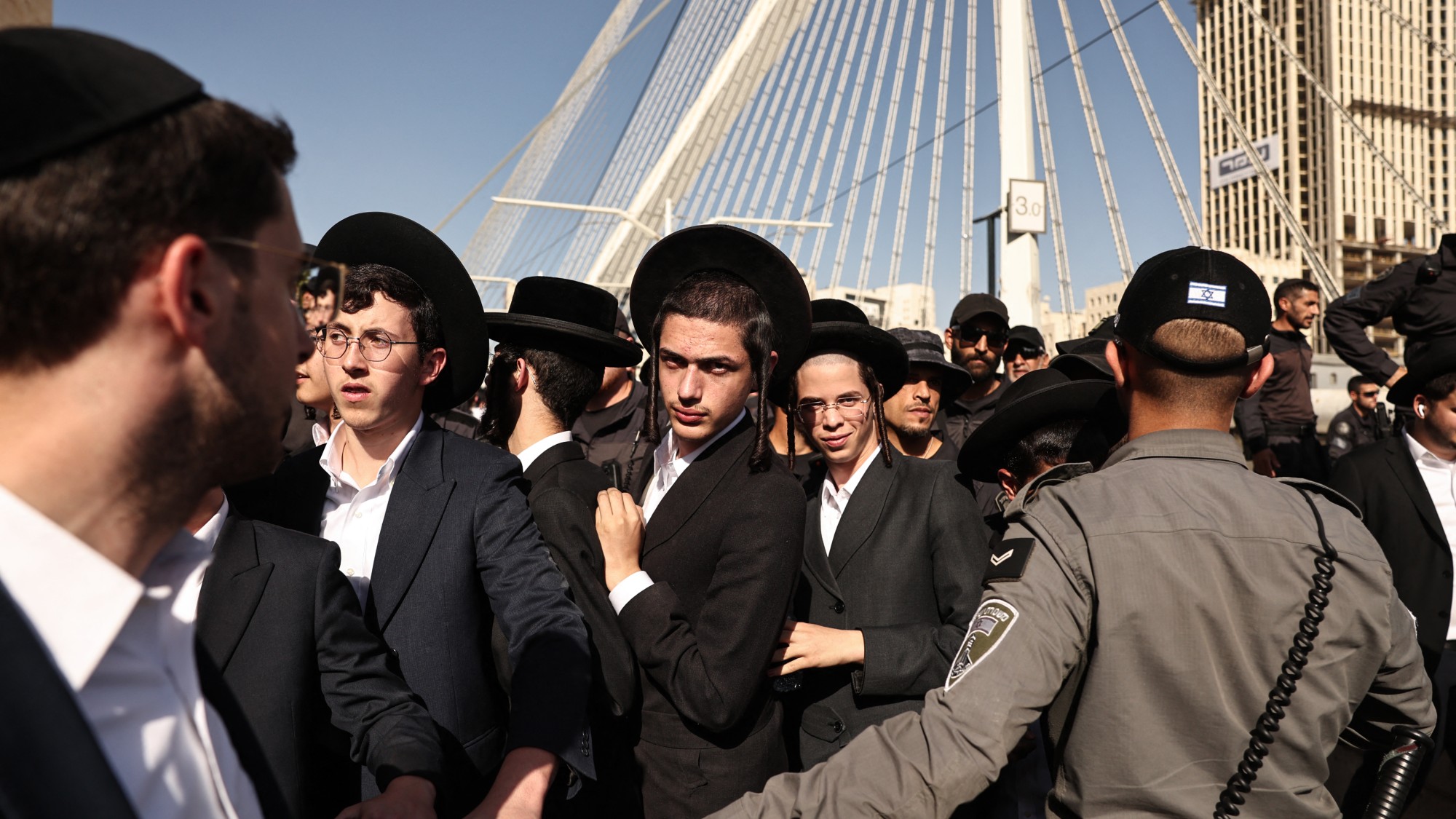 The issue dividing Israel: ultra-Orthodox draft dodgers
The issue dividing Israel: ultra-Orthodox draft dodgersIn the Spotlight A new bill has solidified the community’s ‘draft evasion’ stance, with this issue becoming the country’s ‘greatest internal security threat’
-
 ‘They’re nervous about playing the game’
‘They’re nervous about playing the game’Instant Opinion Opinion, comment and editorials of the day
-
 Will Netanyahu get a pardon?
Will Netanyahu get a pardon?Today's Big Question Opponents say yes, if he steps down
-
 ‘It is their greed and the pollution from their products that hurt consumers’
‘It is their greed and the pollution from their products that hurt consumers’Instant Opinion Opinion, comment and editorials of the day
-
 ‘The choice isn’t between domestic and foreign talent; the nation was built on both’
‘The choice isn’t between domestic and foreign talent; the nation was built on both’Instant Opinion Opinion, comment and editorials of the day